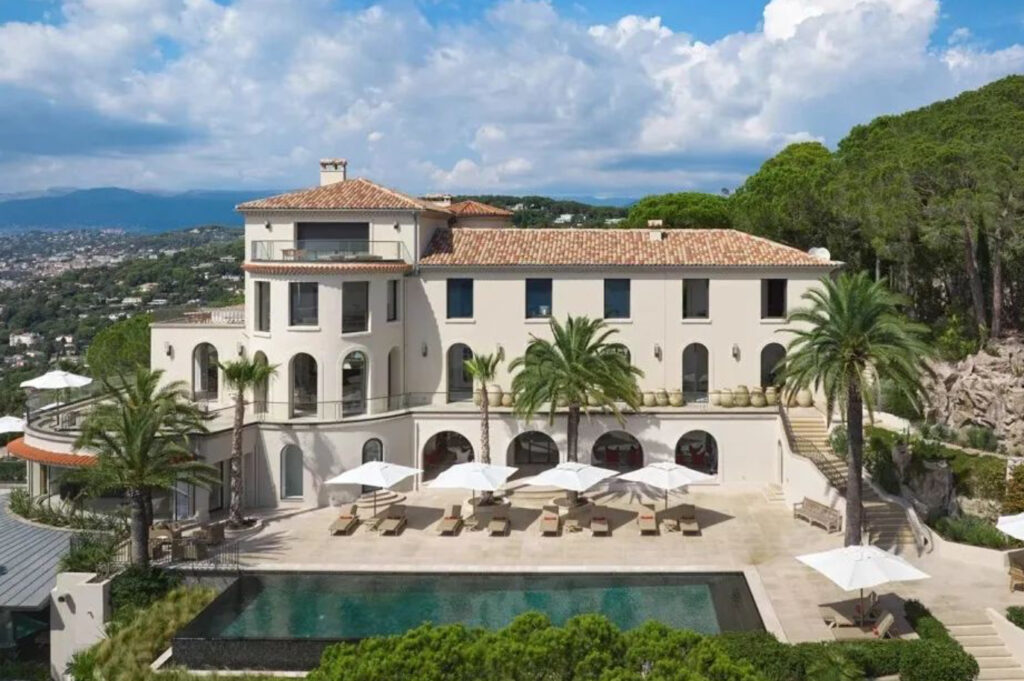Why did LVMH Moët Hennessy Louis Vuitton, the world’s largest luxury conglomerate, spend a staggering €50 million on a 12-bedroom villa in Cannes?
The answer is as opulent as it is strategic: branded events. In a post-pandemic, ultra-digitized world where exclusivity is the final frontier of luxury, real estate isn’t just an asset class—it’s a stage. With this acquisition, LVMH signals that experiential branding, bespoke hospitality, and destination-based storytelling are no longer secondary initiatives; they are central to luxury’s next era.
This editorial unpacks the motivation behind the purchase, the shifting geography of luxury branding, and why Cannes—long known for its film festivals and celebrity cachet—is being reimagined as a permanent showroom for elite experience marketing.
WHY CANNES? THE CITY AS STAGE
The French Riviera has always been synonymous with elegance, jet-set glamour, and the cinematic opulence of the Cannes Film Festival. But LVMH’s decision to anchor itself in Cannes year-round reflects a deeper shift. Cannes is no longer just a backdrop—it’s becoming a branded ecosystem, a fertile playground for curated, high-touch engagements with the elite.
Throughout the summer months, Cannes plays host to a rolling calendar of fashion pop-ups, brand-sponsored yacht parties, and fine dining showcases. A luxury villa in this environment doesn’t just house guests; it positions the brand within a circuit of cultural capital, just minutes from where global influencers, celebrities, and decision-makers gather.
This new villa will serve as a flexible branded venue, capable of transforming overnight from a Louis Vuitton haute couture salon to a Moët & Chandon champagne tasting or a Dior skincare masterclass. Its versatility becomes its most valuable design feature.
THE RISE OF HAUTE HOSPITALITY AS STRATEGY
LVMH’s foray into high-end hospitality isn’t new. In fact, it’s part of a sweeping, long-term vision. The conglomerate already operates Cheval Blanc (a portfolio of exclusive hotels in St. Tropez, Paris, the Maldives and Courchevel) and acquired Belmond Ltd. in 2019 for $3.2 billion, bringing 46 iconic hotels, trains, and river cruises into its stable.
But this Cannes villa signals an intimate, invitation-only layer of hospitality—a move beyond branded hotels into private immersive spaces designed to deepen relationships with high-spending clientele.
Think of it this way: A flagship boutique draws foot traffic. A resort offers brand alignment. But a villa—private, pristine, and peerless—draws loyalty. It delivers the feeling of being chosen, of having arrived in a world only a few will ever see.
FROM FASHION SHOWS TO FOMO
LVMH isn’t just selling handbags or Champagne. It’s selling status, and status today is social, visual, and viral. As luxury clientele becomes younger, more mobile, and more connected, Instagrammability is no longer superficial—it’s structural to marketing.
This villa will be a photo-ready, invite-only content engine—designed for campaign shoots in the morning and ambient garden parties by night. The goal? Create environments that demand to be shared, prompting digital envy and encouraging aspirational audiences to yearn for inclusion.
By hosting these exclusive moments in Cannes—one of the world’s most geographically and symbolically glamorous locations—LVMH isn’t just showcasing product. It’s curating desire.
And that desire ripples: one post from a private dinner hosted by Pharrell at the villa could have more brand impact than a billboard in Tokyo or a magazine spread in Vogue Paris.
THE CLIENT EXPERIENCE, REENGINEERED
Luxury brands are now in the lifetime value business. With top-tier clients spending hundreds of thousands of euros annually across multiple maisons, keeping them close requires more than gifts or private shopping appointments. It requires meaningful, repeatable memories.
This villa, with its panoramic views, infinity pools, and artfully restored interiors, becomes a living CRM (Customer Relationship Management) tool. It will host clients across verticals—those who buy Dior Couture, collect Hublot timepieces, sip Dom Pérignon, or reserve Guerlain’s orchidarium facials.
From hosting private weddings to staging capsule collection previews and foundation-backed art exhibitions, the villa blurs the lines between commerce and culture, lifestyle and loyalty. Guests won’t just be buying—they’ll be belonging.
GLOBAL PROPERTY PLAY—LVMH’S BIGGER STRATEGY
While the €50 million price tag has drawn attention, it’s just the tip of the iceberg. LVMH is currently on a global real estate acquisition spree, having spent over €2.45 billion in recent years on high-visibility properties in Paris, Milan, Beverly Hills, Seoul, and Dubai.
These purchases aren’t speculative—they’re tactical. Each location becomes a multifunctional branding node:
- The Samaritaine in Paris was transformed into a retail-hospitality hybrid with Cheval Blanc Paris at its heart.
- LVMH Tower in Beverly Hills is being designed as a “Maison Mall” concept—flagship, atelier, and dining venue in one.
- The Cannes villa now completes a triangle of influence across culture (film festival), leisure (Mediterranean luxury), and high society.
Real estate isn’t just the ground floor of luxury anymore. It is the brand’s body language, its way of expressing scale, permanence, and elite access without saying a word.
WHAT THE VILLA TELLS US ABOUT FUTURE LUXURY
There are broader lessons embedded in this purchase. First, the age of the “event economy” is not slowing down. From Coachella activations to Met Gala afterparties, the most powerful brands don’t just sell—they perform.
Second, experiential luxury is moving away from the public square. Exclusive dinners, villa retreats, and secret capsule launches signal a return to privatized elegance. The best clients are no longer courted—they are curated.
And finally, luxury real estate is proving to be the most immersive brand medium of all. Where a digital ad lasts seconds, a night at the LVMH Cannes villa becomes a lifelong memory, reinforced by brand affinity.
Impression
LVMH’s Cannes villa is not about bedrooms or blueprints. It’s about strategy made tangible. It’s about understanding that where a story is told can be just as powerful as how it’s told. And in today’s landscape of fleeting attention and aesthetic overload, the brands that win are the ones who build physical stages for emotional storytelling.
A €50 million villa may seem excessive—until you realize what it truly buys: loyalty, spectacle, influence, and legacy.
No comments yet.







